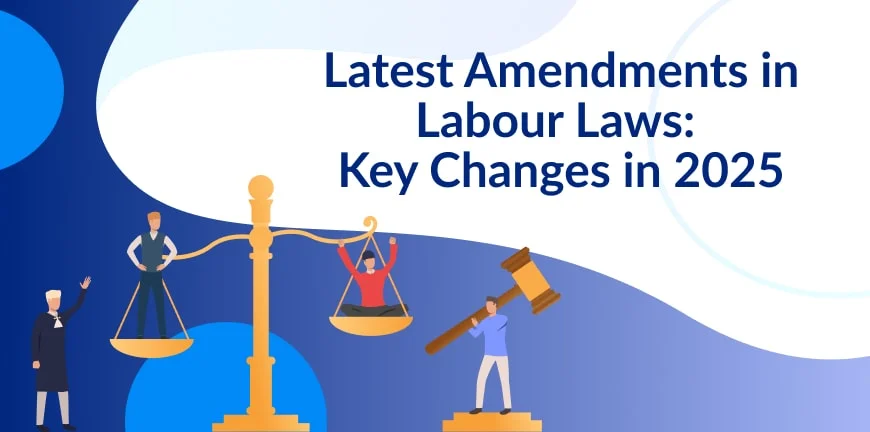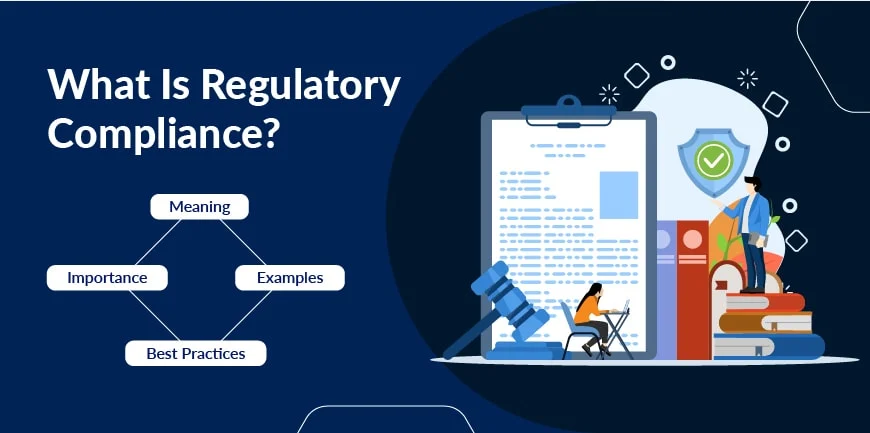
High Tariffs: Will India’s Pharma Sector Look Beyond the US?
14/03/2025
Developing the Workforce for a Quantum Computing Revolution
22/03/2025Some important amendments were made to the labour code and related regulations in October 2024. All of these changes have come into effect on January 1ST 2025. The new amendments will impact businesses and bring in changes in the labour relations between employees and employers, employee rights and other processing within companies.
As you know there are 29 existing laws. These 29 laws are consolidated into 4 comprehensive codes.
- 4 laws in the Wage Code
- 3 laws in the Industrial Relations Code
- 9 laws in the Social Security Code
- 13 laws in the Occupational Safety, Health and Working Conditions Code
These new labour laws will not only facilitate ease of doing business but will also ensure a better standard of living for all workers.
Let us take a closer look at what these codes state and how implementing them can make a positive difference in the lives of workers.
Wage Code 2019
As per the labour laws amendment 2019, workers will now have the right to minimum wages.
- Minimum wages are a must to 50 crore workers of organized and unorganized sectors followed by review of the same in every 5 years.
- Equal remuneration to male and female workers
- Removal of regional disparity in minimum wages
- From 28.08.2017 Payment of Wages Act has increased the wage ceiling from Rs. 18000 to Rs. 24000.
- Wage determination will now be based on criteria such as skill level and geographical area.
- Effective from October 1, 2024, Unskilled workers will earn a daily minimum wage of ₹783, semi-skilled workers ₹868, and highly skilled workers ₹1,035. This adjustment is intended to assist workers in managing the rising cost of living.
Social Security Code 2020
The laws in the Social Security Code have been introduced to secure the right of workers for insurance, pension, maternity benefits and more.
- By contributing a small amount workers (organized and unorganized) can now get free treatment available under hospitals and dispensaries of ESIC.
- Workers engaged in hazardous work are to be registered with ESIC to avail ESIC benefits
- Opportunity to join ESIC for platform and gig workers engaged in new technology
- Plantation workers to get benefit of ESIC
- Pension scheme benefits (EPFO) to all workers of organized, unorganized and self-employed sectors
- No minimum service period required for fixed term employees to avail payment of gratuity
- Employees engaged on fixed term to get same social security benefit as permanent employees.
- Social Security funds for providing social security to the unorganized sector.
OSH Code (Occupational, Safety, Health and Working Conditions Code)- 2020
The OSH Code ensures the security of interests of workers engaged in factories, mines, plantations, transport sector, contract and migrant workers.
- Inter-state migrant workers will have certain provisions, and they can register themselves as interstate migrant workers on the national portal.
- Interstate workers will be eligible to get benefits of all social security schemes.
- For a worker engaged in building and other construction work in one State and moving to another State, benefit from the building and other Construction Workers’ Cess fund will be provided.
- Instead of 240 days, now if a worker has worked 180 days, he shall be entitled for one-day leave for every 20 days of work done.
- Maternity Benefit Act was amended in 2017 to increase the paid Maternity leave for women workers from 12 to 26 weeks and ensure mandatory crèche facility in all establishments having 50 or more workers.
Industrial Relations (IR) Code, 2020
In this Code, all possible steps have been taken for industrial units and workers so that disputes do not arise in future.
- In case a worker loses his job, under the Atal Bimit Vyakti Kalyan Yojna, he will get financial aid from the government. It is an unemployment allowance that workers are eligible for under the ESI scheme.
- At the time of retrenchment, a worker would be provided 15 days’ wages for re-skilling. The wages would be credited directly into the bank account of the worker so as to enable him to learn new skills.
- In industrial establishments, a Trade Union having 51 per cent votes shall be recognised as the sole negotiating union which can make agreements with employers.
- Workers disputes to be resolved within a year in the Tribunal. Industrial Tribunals to have 2 members to facilitate faster disposal of cases.
- In industrial establishments in which no trade union gets 51 per cent votes, a negotiating council of trade unions shall be constituted for making agreements with employer.
Timeline of Implementation
The new amendments in labour laws in India are to be implemented to all businesses. But depending on the size of the business, they are allowed to do so in specific timelines.
- Large Enterprises with over 500 employees are required to implement the labour law amendments immediately and are to maintain compliance with them.
- Medium Enterprises with 100-500 employees in their organization get an additional period post phase 1 to fully integrate the labour laws and follow compliance.
- Small enterprises with less than 100 employees are given up to two years to fully adopt the new laws.
Business Impact and Compliance Plan
- Large Enterprises must upgrade their HR and payroll system as there will be increased compliance requirements for employees benefits and dispute resolution.
- Medium Enterprises must update their wage structures and employment contracts promptly. They must also make adjustments in labour union regulations and dispute resolution mechanisms.
- Small enterprises will be allowed upto two years to transition and are to stay informed and plan for compliance.
The gradual implementation of latest amendment in labour laws marks a pivotal change towards modernizing labour regulations, improving worker protections, and creating a more favourable environment for businesses. It is essential for both employers and employees to remain informed and prepare for these developments to facilitate a seamless transition.
FAQs- Frequently Asked Questions
1. What are the recent changes in labour law?
Recent Indian labour law changes, include four Labour Codes (Wages, Social Security, Industrial Relations, and Occupational Safety, Health, and Working Conditions). The aim is to simplify and consolidate existing laws, with a focus on social security, minimum wages, and streamlining processes.
2. What are the latest amendments in the factories act?
The latest amendments to the Factories Act, 1948, as of March 25, 2025, primarily focus on enhancing safety and welfare provisions, particularly for factories engaged in hazardous processes or classified as Major Accident Hazard Factories.
3. What are the new working hours rules?
According to the new amendments in labour laws in India, specifically the Occupational Safety, Health and Working Conditions Code, 2020, cap daily working hours at 12 and weekly hours at 48, allowing for a 4-day workweek and increasing overtime limits to 125 hours per quarter.
4. What are the rules for night shift in India?
Night shifts generally refer to working hours between 7:00 p.m. to 6:00 a.m. In India, legislations like the Plantation Labour Act, 1951, Factories Act, 1948, State Shops and Establishments Act, etc. contained provisions restricting work during night for women.
5. What are the labour laws in HR?
In HR, key labour laws include those concerning minimum wages, working hours, overtime, leave entitlements, social security, workplace safety, termination, trade unions, and industrial disputes, ensuring fair treatment and worker rights.
Contact Us For Business Enquiry

Hariharan Iyer
Hariharan Iyer is the Vice President – Operations at ALP Consulting, bringing over 40+ years of experience in HR outsourcing and labour law compliance. He leads end-to-end HRO operations, ensuring process efficiency, statutory compliance, and seamless service delivery for clients across industries. With a strong background in labour law governance and workforce management, Hariharan plays a key role in driving operational excellence and compliance-led HR solutions at ALP Consulting.




